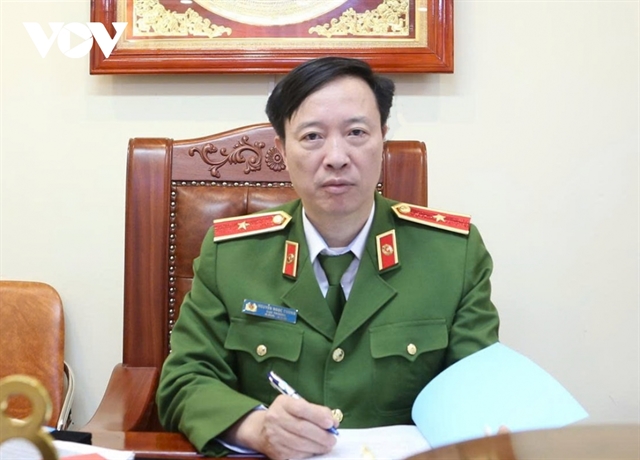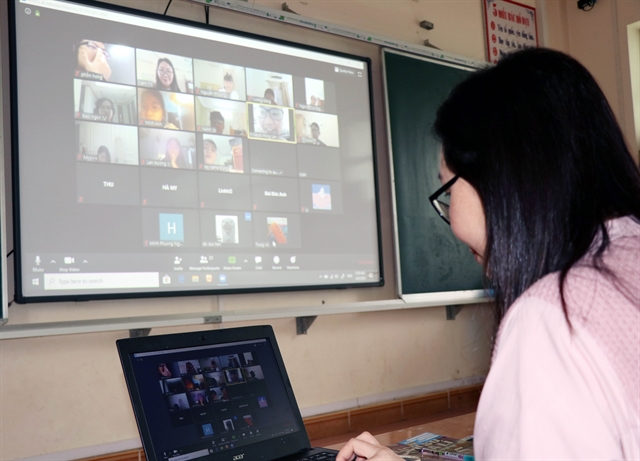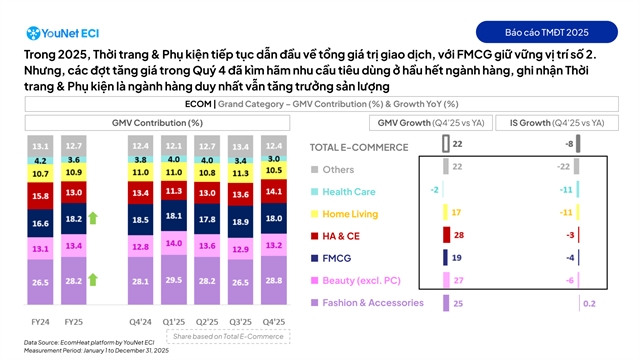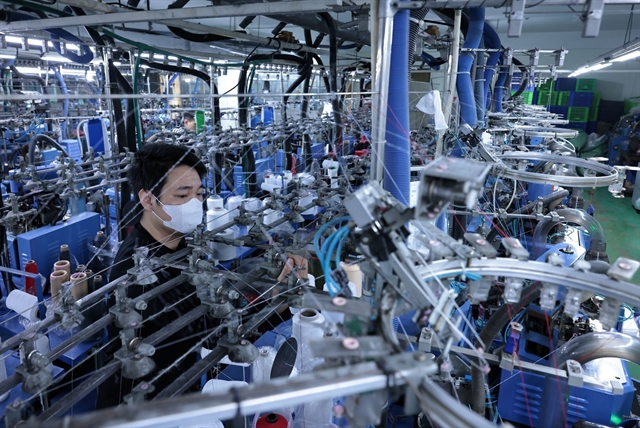 Opinion
Opinion

Nguyễn Sơn Hải, Director of the Ministry of Education and Training's Department of Information and Technology talks to Quân đội Nhân dân (People’s Army) newspaper on changes in learning and teaching methods to adapt to the Fourth Industrial Revolution.

|
| A teacher at a primary school in Quảng Ninh Province teaches online while students are off from school due to the COVID-19 pandemic. — VNA/VNS Photo Văn Đức |
Nguyễn Sơn Hải, Director of the Ministry of Education and Training's Department of Information and Technology talks to Quân đội Nhân dân (People’s Army) newspaper on changes in learning and teaching methods to adapt to the Fourth Industrial Revolution.
How do you think about the application of the information technology in teaching and learning in Việt Nam within the context of the COVID-19 pandemic?
In the last few years, the Ministry of Education and Training has paid special attention to the application of IT in all educational activities. It has become one of the 9 key missions which have been laid down by the ministry. We hope, the novel of the new technology will help Việt Nam to improve the quality of teaching and learning, in science research and application in the 10 years - from 2016 to 2025.
E-learning was introduced into Việt Nam about 10 years ago but many people, including those working in the field of education, expressed their suspicion about its success.
In 2017, the ministry launched a national competition on Designing e-Learning Lessons and surprisingly quite many teachers took part in the competition. Following that competition, the e-learning has widely accepted by the pupils – both in the formal and informal education. What’s more important, e-learning has been proven as a wide choice for Việt Nam in the present context of the COVID-19 pandemic and the Fourth Industrial Revolution.
What will be changes in the Vietnamese traditional teaching to make it adaptable to the Fourth Industrial Revolution?
The online learning methodology has been proven as the right choice for Việt Nam in the current context the COVID-19 pandemic. Based on reports from the educational authorities nationwide, I could say that the online learning has been quite successful.
Both the teachers and students have quickly adapted to the online teaching and learning methodology. And in my opinion, it is also a good opportunity for the Vietnamese educational sector to speed up its application of the digital technology in both teaching and learning.
However, what I want to emphasise is that in the general education – the online learning and teaching can’t replace the Vietnamese traditional methods of learning and teaching. Though, it is appropriated in the current context of the COVID-19. Yet, in the future it should be blended to make it in line with the learning and teaching methodology in the age of the Fourth Industrial Revolution.
Has the ministry come up with any measures to speed up the process of applying digital in the education sector in the future?
At present the Vietnamese educational sector has rapidly applied new technologies of the Fourth Industrial Revolution in many teaching and learning activities, including building the big data base to promote the application of information technology in education activities.
The big data base has been applied to digitalise information of almost 25 million pupils and 1.5 million teaching staff and school officers in almost 53,000 schools, from kindergartens to high schools nationwide. Such a digital data base is made in line with the Việt Nam’s e-Government target.
In the current context of the COVID-19, the education sector has applied online teaching and learning activities in a timely manner. The ministry has issued related regulations and guidelines to create legal framework for localities and schools to carry out online learning practically and effectively.
What are the role of teachers in the process of digital application?
We understand that in the course of digitalisation, human resource is of great importance. According to the MOED’s plan, the IT subject will become a compulsory subject for students from grade 3rd on ward. This is an important preparation for Việt Nam in training and fostering the young generation to become good citizens in the 4.0 digital era.
The teaching staff also needs to change to adapt to the digital working environment. They need to pioneer in digital application and regularly be trained to get update and master latest information technology development, thus helping them use information technology in educational activities effectively. VNS




